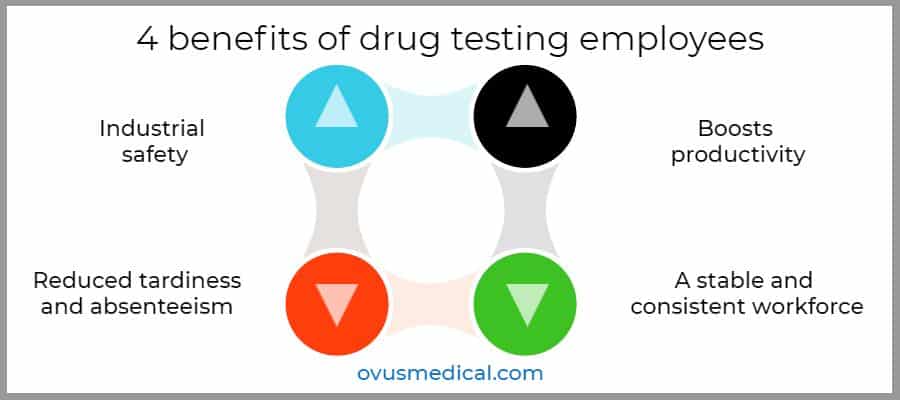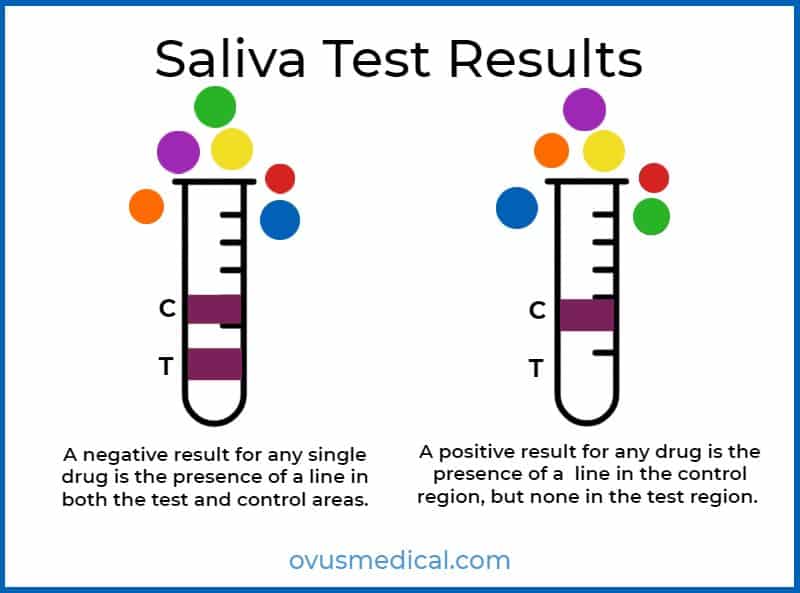When looking at the statistics for drug use, the most common drug test for employment comes into play. A study by the National Council on Alcohol and Drug Dependence estimates that alcohol and drug misuse costs over $81 billion annually in lost productivity. This, in turn, causes a 300 percent increase in medical costs for employers.
Mental and physical impairment in the workplace causes a decrease in employee productivity. This leads to over $49 billion in missed workdays and employer costs.
The past five years alone have seen a substantial increase in drug and alcohol use in the workplace.
But what can you do about it? Find out about the most common drug test for employment. And how it can help your business prevent costly drug and alcohol-related employee expenses.
What Is the Most Common Drug Test for Employment?
There are many different ways to check for drugs in the workplace, but what is the most common drug test for employment? The most common drug test is the urine test used to check for illicit substances in established employees.
By regularly administering a urine drug test for work, employers can ensure that their employees are not engaging in drug or alcohol abuse that may impede their performance in the workplace.
This also helps to reduce the number of workplace accidents that may occur if an employee shows mental or physical impairment due to drug use.

What Do Employers Look for in a Drug Test?
Employers are looking for any number of illegal and legal substances that may impair an employee’s ability to function.
Chronic abuse can occur with the misuse of prescription medications and street drugs. As well as alcohol and certain over-the-counter medications. Stimulants and depressants give their users extreme highs and crashing lows.
Substance impairment pertains to any situation where an employee is unable to focus or control their body due to substance abuse. This can be especially dangerous in warehouse settings where heavy boxes and pallets may be in use. Or around any sort of machinery or equipment that requires specialized training to operate.
Employees who are not fully aware of their environment can cause harm to themselves or others. They may damage expensive equipment in the process.
With rising costs to account for these problems, your company may have to foot the bill. You’ll be paying for employee drug rehabilitation programs and worker’s comp cases. As well as, missed work hours that can affect your company’s productivity rates.
Furthermore, this can damage your company’s reputation as a whole. You want to make sure you’re hiring the best and most competent employees possible. So, drug testing becomes a necessary tool to monitor and assess their performance.
Urine drug panel tests can screen anywhere from 5 to 18 different types of drugs and substances, depending on the panel test purchased. These tests can detect a multitude of drugs in as little as 5 minutes.
The 18-panel comprehensive drug test can screen for Marijuana, Amphetamines, Cocaine, Methadone, Fentanyl, MDMA, Buprenorphine, Kratom, MDMA, Methamphetamines, PCP, Opiates, Oxycodone, and Tricyclic Antidepressants. They can even detect alcohol through Ethyl Glucuronide testing.
What Do Pre-Employment Drug Tests Look For?
Employers may use pre-employment drug testing as a condition of an extension of employment to an individual. They must be negative of illicit substances before they can be officially hired for a particular job. Pre-employment drug tests may test for the more commonly abused drugs such as Marijuana, PCP, Amphetamines, Opiates, and Cocaine.
What is the most common pre-employment drug test? A standard 5-panel urine test will screen for these frequently used substances.
Marijuana is legal in some states for medical and recreational use. But it is still illegal for the federal government, public safety, and national security sectors. The laws are always subject to change at any time.
The Americans with Disabilities Act
The Americans with Disabilities Act provides certain protections for individuals with a physical or mental impairment in the workplace. Employees cannot be denied employment or fired due to certain mental and physical disabilities. Under the Americans with Disabilities Act (ADA) of 1990 employers cannot fire, refuse to hire, or refuse to promote someone simply because she or he has a history of substance use.
Employers also cannot fire, refuse to hire, or refuse to promote employees merely because they are enrolled in a drug or alcohol rehabilitation program. They cannot single out particular employees whom they think may be under the influence or showing signs of impairment that may be attributed to their disability. Employers may also not ask for an employee’s prescription medication use before hiring or promoting as this can also violate the ADA in some states.
The Americans with Disabilities Act also protects those who take medications for their disability that may cause them to act like they appear intoxicated. For example, benzodiazepines with anticonvulsant properties for the treatment of seizures.
Do Pre-Employment Drug Tests Check for Alcohol?
Depending on state laws, employers may be able to test for alcohol via a urine test. This involves purchasing a specific EtG test, or Ethyl Glucuronide testing cup. These specialized tests can detect the presence of alcohol in a prospective employee’s urine within 24-48 hours of initial consumption.
Again this varies on a state-by-state basis as some states have more stringent laws on what may or may not be tested.
While urine tests can detect a wide array of intoxicants in an individual’s urine, the possibility of contamination or an attempt to alter the sample is very high. Some individuals may try to sneak in clean urine from another person so they can avoid testing. Others may try to intentionally dilute or contaminate their sample so they’ll have to have a do-over at a later date.
Administering Urine Drug Tests
Some states require employees to be informed of routine or surprise drug testing policies in writing before employment begins. An employee may refuse a drug test as long as it is made clear that doing so may terminate their employment.
You may administer a urine test on a random or scheduled basis depending on your industry and drug screening frequency needs. Some states have protections against a company applying a blanket test to all employees.
They require reasonable suspicion for a particular employee who is suspected of using drugs. You may administer a drug test if this employee in question poses a danger to themselves or others through intoxication. As long as it does not infringe upon the rights in the ADA.
Administration of a urine test must take place in a state-sanctioned drug-testing lab. Depending on the circumstances, a technician may be present to assure that the urine comes from a specific individual and is not tampered with or altered in any way. The urine may be tested within the facility itself or sent off to a third-party testing site.
Some urine testing cups have panels built-in that can detect certain substances in a matter of minutes. Others may involve dipping single special drug testing strips into a urine sample to detect a particular drug or a card with multiple drug strips to achieve a specified number of panel results.

Saliva Drug Tests
Saliva tests are another popular form of workplace employment drug testing. They involve checking the levels of a substance inside an existing or potential employee’s saliva through a cheek swab or special Q-tip that is placed inside the employee’s cheek.
These tests can be done in plain view of the screener as there is no invasive testing that requires an employee to use a bathroom in a drug testing clinic.
There’s also no waiting to produce a sample as there is with a urine test because saliva is constantly available inside the mouth. There is less chance of tampering with the sample as it does not involve the use of a bathroom facility. Saliva tests have a 99% accuracy level and only require a small amount of fluid to get a read.
They can produce results in under 15 minutes. The window for testing is much shorter than urine tests.
You can administer saliva tests in the field after an accident or incident and still show recent drug use. They have a recommended use of a half-hour of to 24 hours from the time of suspected drug use.
They are also affordable and can come in quantities as large as 1000 for just $2.99 per swab, along with bulk urine drug tests. Saliva tests are the second most common drug test for employment. They can detect up to 10 common drugs.
Quality Drug Testing Supplies
At Ovus Medical, we have a large selection of drug testing supplies. Including drug testing saliva swabs, drug testing cups, drug testing strips, and drug testing cards. We sell urine drug test cups in bulk, the most common drug test for employment.
Our products are FDA approved and some are even suitable for at-home testing. Check out our full line of drug testing products available on our website. We offer sameday shipping on orders over $99.
Check out Ovus Medical today. Contact Us to start your bulk order.
Buy Drug Tests Here


